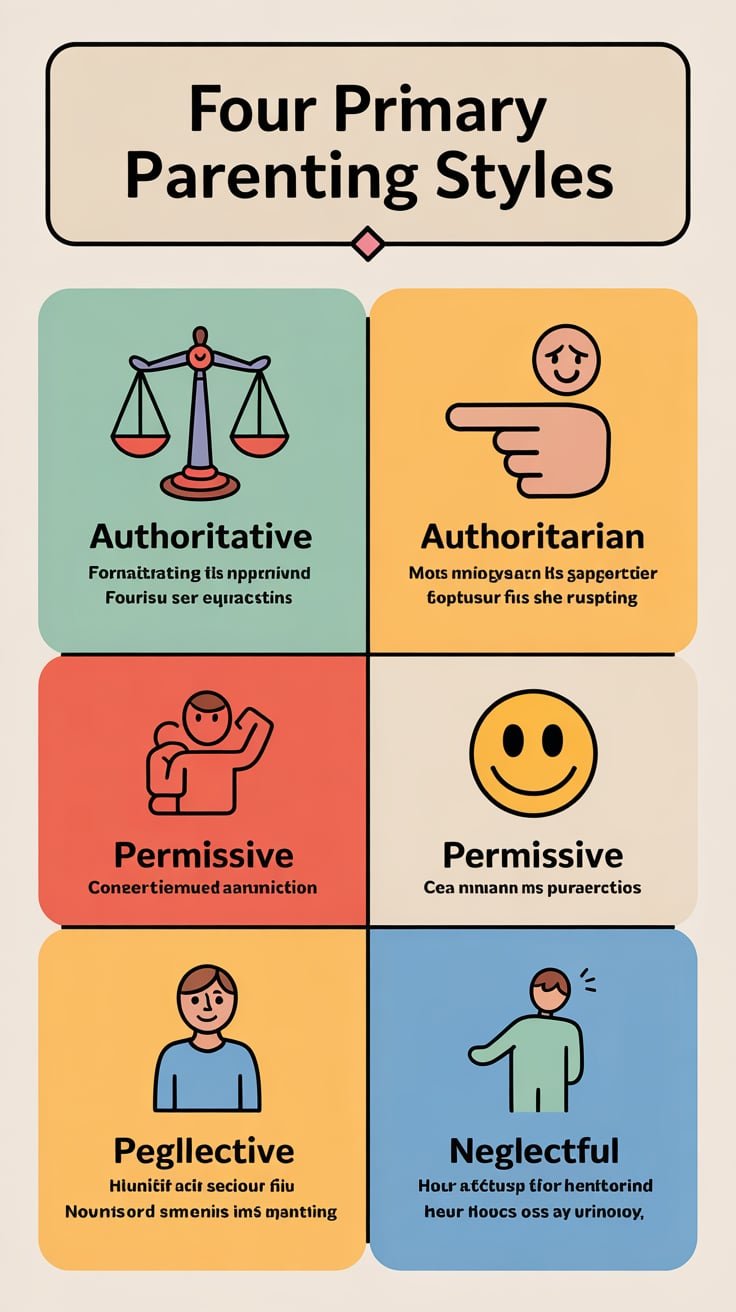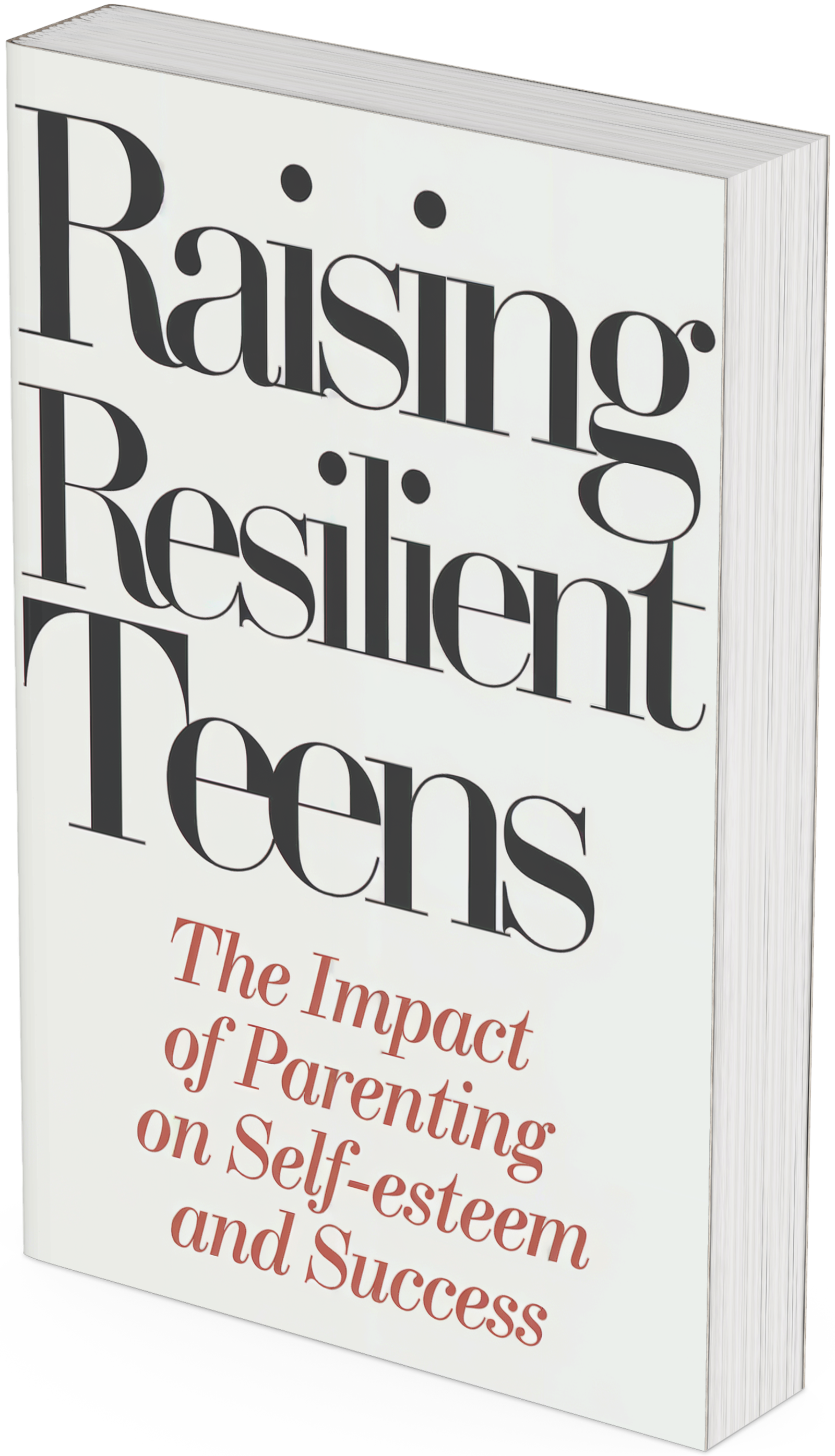Explore how parenting styles shape teen confidence, with real-life examples, cultural insights, and tech tips. Learn to foster resilience, repair relationships, and support teens with special needs. 🌍💡
Thank you for reading this post, don’t forget to subscribe!Parenting is one of the most influential factors in shaping an adolescent’s self-esteem, resilience, and overall well-being. Whether you’re a parent, educator, or counselor, understanding the impact of different parenting styles can empower you to support young people more effectively. In this guide, we break down the essential steps to nurturing confidence in teens and provide actionable tips for fostering resilience—all while considering cultural nuances, technology, and the unique needs of every family.

1. Understand the Four Parenting Styles
Before you can enhance adolescent well-being, it’s important to recognize the four primary parenting styles. Each style can shape your teen’s self-esteem in very different ways:

Authoritative Parenting
Balanced with high warmth and clear expectations.
Example: Imagine a parent who praises a teen’s effort in preparing for a school project—even when the result isn’t perfect. This encouragement builds confidence and promotes healthy risk-taking.
Benefits: Encourages open communication, independence, and resilience.
Authoritarian Parenting
Strict discipline with low emotional connection.
Example: Consider a scenario where a parent demands perfect grades without acknowledging the teen’s effort. This can create a constant fear of punishment for any perceived failure, leading to anxiety and low self-esteem.
Drawbacks: May cause teens to feel that their worth is tied solely to achievements, resulting in stress and diminished confidence.
Permissive Parenting
High warmth with few rules and minimal structure.
Example: A teen might receive constant praise without guidance, leading to challenges when confronted with real-world expectations and boundaries.
Challenges: Often results in difficulties with self-discipline and handling setbacks.
Rejecting/Neglectful Parenting
Lack of both warmth and structure.
Example: A teen whose parents are frequently absent or disengaged might struggle to feel valued, leading to feelings of isolation and low motivation.
Consequences: Can contribute to rebellious behavior, poor academic performance, and a lack of social skills.
Cultural Note: Parenting styles vary globally. For example, collectivist cultures may emphasize respect for authority (leaning authoritarian), while individualist cultures prioritize independence. Balance cultural values with your teen’s emotional needs.
2. How Parenting Influences Adolescent Self-Esteem
Self-esteem is the lens through which teens view themselves and their potential. It influences how they tackle challenges, form relationships, and approach schoolwork. Consider these real-life insights:

- For Teens Raised with Authoritative Parenting:
They often report feeling secure and supported, which translates into a strong sense of self-worth.
Adolescent Quote: “I feel like I can try new things because I know my parents have my back.” - For Teens Experiencing Authoritarian Parenting:
They may internalize a fear of failure.
Adolescent Quote: “I always worry that one mistake will make me a failure.” - For Teens with Permissive Parenting:
They sometimes struggle with boundaries when expectations aren’t clear. - For Teens with Neglectful Parenting:
They often search for validation elsewhere, which can negatively impact their overall well-being.
3. A Step-by-Step Guide to Nurturing Confidence and Well-Being
Step 1: Build Open Communication
- Active Listening: Create a safe space for your teen to share their feelings.
- Express Empathy: Validate their emotions by acknowledging their struggles and successes.
- Regular Check-Ins: Set aside time weekly to discuss what’s happening in their lives.
Step 2: Set Clear and Consistent Boundaries
- Establish Rules: Clearly outline family expectations while explaining why they matter.
- Allow Autonomy: Gradually increase responsibility as your teen matures.
- Consistency is Key: Ensure that boundaries are consistently applied to build trust and reliability.
Step 3: Encourage Self-Reflection and Growth
- Celebrate Efforts: Recognize the process, not just the outcomes.
- Share Your Experiences: Demonstrate how you’ve overcome challenges.
- Embrace Mistakes: Reinforce that errors are opportunities for learning.
Step 4: Create a Supportive Environment
- Positive Relationships: Encourage social interactions that reinforce healthy self-esteem.
- Extracurricular Activities: Support interests that help your teen explore their talents.
- Quality Time: Spend time together to reinforce that your teen is valued and supported.
4. Expanding the Conversation: Cultural Sensitivity and the Impact of Technology
Cultural Sensitivity in Parenting

- Recognize that parenting styles may vary significantly across different cultures.
- Acknowledge that cultural values and traditions can influence expectations, discipline methods, and communication.
- Tailor your approach by understanding and respecting these cultural nuances while still fostering an environment of open dialogue and support.
Addressing the Impact of Technology

- Healthy Tech Habits: Encourage balanced screen time and offline activities.
- Social Media Influence: Discuss the impact of social media on self-esteem, and help your teen navigate online challenges.
- Digital Communication: Use technology as a tool for connection, but ensure it does not replace face-to-face interactions.
5. Special Considerations for Parents of Teens with Special Needs

Parenting teens with special needs often requires additional understanding and customized approaches:
- Tailored Support: Seek advice from professionals who specialize in your teen’s specific needs.
- Inclusive Communication: Ensure that your teen feels understood and accommodated in both academic and social settings.
- Community Resources: Leverage support groups and specialized workshops to learn effective strategies for fostering self-esteem and independence.
Parenting Teens with Special Needs
- ADHD/Anxiety/Autism:
- Collaborate with therapists for tailored strategies.
- Use visual schedules or sensory-friendly spaces.
- Celebrate small wins: “You focused on homework for 30 minutes—awesome!”
6. Repairing Relationships: A Guide for Parents

If you recognize that past parenting approaches have affected your relationship with your teen, it’s never too late to begin the repair process:
- Apologize and Acknowledge: Openly admit your mistakes and express your commitment to change.
- Open Dialogue: Create opportunities for honest conversations about feelings and expectations.
- Rebuild Trust: Engage in consistent, supportive actions to demonstrate your commitment to a healthier relationship.
- Professional Support: Consider family counseling or therapy to facilitate deeper understanding and healing.
7. Transform Your Parenting Journey
Small, consistent shifts in your approach can lead to lifelong benefits for your teen’s confidence and success. Whether you’re just starting to refine your methods or seeking to repair a strained relationship, every positive change makes a difference.
check out our ebook
For a comprehensive dive into nurturing resilient and confident teens, check out our ebook:
RAISING RESILIENT TEENS: The Impact of Parenting on Self-Esteem and Success

Discover practical strategies, real-life case studies, and expert insights that can transform your parenting approach and empower your teen to thrive.
By embracing adaptable, culturally sensitive, and consistent parenting methods—while also addressing modern challenges like technology—you’re investing in a future where every adolescent feels valued, confident, and capable of overcoming life’s challenges. Start your journey toward positive change today!
Parenting isn’t about perfection—it’s about adaptability. By blending warmth, structure, and cultural awareness, you empower teens to thrive in a complex world.
Real-Life Case Study:
The Rivera Family shifted from authoritarian to authoritative parenting after their son withdrew emotionally. By involving him in rule-setting and acknowledging his stress, his grades and mood improved. “We learned to trust each other,” says Mrs. Rivera.
Incorporate These Tips Today:
- Add a “no-judgment” chat time after dinner.
- Write a heartfelt note if verbal apologies feel hard.
- Explore a new hobby together to strengthen bonds.
🌱 Small steps, lasting impact.


































